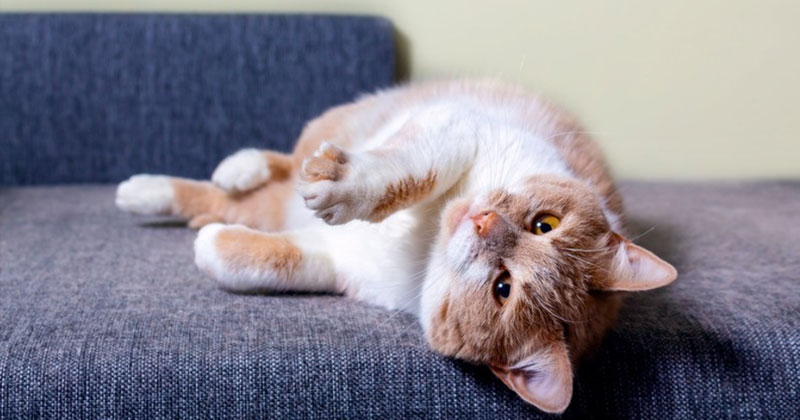
Cats are known for their sleek, shiny coats, which not only look beautiful but also help protect their skin. However, when a cat's hair starts to fall out, it can leave pet owners with some questions. There are many possible reasons behind hair loss in cats, from medical conditions to behavioral issues. In this blog, we’ll discuss some common causes of hair loss in cats, why it happens, and what you can do to help. If you’ve noticed that your cat’s hair is falling out, contacting Coventry Veterinary Clinic at (402) 819-2478 or requesting an appointment could help you address the underlying issue.
When a cat’s hair begins to thin or shed more than usual, it may be the result of a range of factors. While some causes are harmless, others may require veterinary attention.
Allergies in cats can be caused by food, fleas, dust mites, pollen, or certain cleaning products. When your cat is allergic to something, their skin can become inflamed and itchy, leading them to over-groom or scratch excessively. This irritation often causes patches of hair to fall out. If your cat’s hair is falling out and they are frequently scratching, allergies might be the cause.
In these cases, determining the allergen is key. Your veterinarian can help by recommending an allergy test to identify the trigger. Once identified, removing or minimizing the allergen from your cat’s environment can help stop hair loss.
Fleas, ticks, and mites can cause irritation, leading to constant scratching and over-grooming. Flea allergy dermatitis is where cats develop an allergy to flea saliva. Even a single flea bite can lead to intense itching, causing your cat’s hair to fall out around the neck, back, and tail. Ticks and mites, like ear mites or mange mites, burrow into the skin which leads to inflammation and, ultimately, hair loss. If you suspect parasites might be to blame, schedule a visit to your veterinarian at Coventry Veterinary Clinic. We can provide treatments that effectively eliminate these pests and help your cat regain a healthy coat.
Stress can take a toll on your cat’s physical health. Cats often react to stress by grooming excessively, sometimes to the point of developing bald patches. Stress-related hair loss is often localized, meaning you might notice it in specific areas such as their belly, legs, or sides. The reasons for stress in cats can range from a change in routine, moving to a new home, or the introduction of a new pet. Reducing stressors or making their environment more comforting may prevent further hair loss. If you think anxiety might be the cause of your cat’s hair falling out, Coventry Veterinary Clinic can help you determine ways to make your cat feel more comfortable.
Beyond external factors like allergies and stress, underlying health conditions can also cause a cat’s hair to fall out. Some of these conditions require veterinary attention to manage properly.
Hormonal imbalances, such as hyperthyroidism or Cushing’s disease, can lead to hair loss in cats. In the case of hyperthyroidism, the overproduction of thyroid hormones can cause the hair to become thin and fragile, resulting in hair loss. Cats with Cushing’s disease, which is caused by an overproduction of cortisol, may experience thinning fur and fragile skin. If your cat’s hair is falling out and you notice other symptoms such as weight loss, increased appetite, or changes in energy levels, it might be worth scheduling a visit to the vet. A blood test can help diagnose hormonal imbalances, and treatment can help manage the condition and prevent further hair loss.
One of the most common infections that leads to hair loss in cats is ringworm, a fungal infection that affects the skin, fur, and claws. Ringworm typically causes circular patches of hair loss, redness, and scaly skin. Bacterial infections can arise when your cat's skin is already irritated or damaged, such as from a parasite or allergic reaction. These infections can spread quickly, causing your cat’s hair to thin or fall out in large areas. If you notice red, inflamed patches on your cat’s skin in addition to hair loss, a visit to Coventry Veterinary Clinic is recommended.
A cat’s diet plays a significant role in the health of their skin and coat. Nutritional deficiencies, particularly in essential fatty acids, vitamins, and proteins, can lead to hair loss. If your cat isn’t getting the nutrients they need from their food, their coat may become dull, brittle, and prone to shedding. Switching to a high-quality diet formulated for cats may help resolve the issue, especially if a deficiency is the cause of the hair loss. Your veterinarian can recommend appropriate dietary changes to help your cat regain their healthy coat.
It’s not uncommon for cats to shed, but when the shedding becomes excessive or bald spots start to appear, you should take a moment to consider when veterinary attention is necessary. If you’re concerned that your cat’s hair is falling out and it's accompanied by other symptoms like scratching, redness, changes in behavior, or weight loss, contacting Coventry Veterinary Clinic at (402) 819-2478 or requesting an appointment is a good next step. Your veterinarian can diagnose the underlying cause and recommend appropriate treatment.
While mild shedding is normal, certain signs mean a vet visit is necessary. Hair loss caused by parasites, infections, or nutritional deficiencies needs veterinary care, as at-home remedies may worsen the issue. If stress is the cause, environmental changes like added enrichment or a stable routine may help. However, if these adjustments don't work, schedule a visit to see your vet to rule out medical conditions and get further guidance.
Cats are resilient animals, but when hair loss becomes a concern, it’s important to understand that the causes can range from easily treatable conditions to more serious health issues. Identifying the origin of your cat’s hair falling out early on can prevent more significant complications later. If you’ve noticed your cat’s hair is falling out, schedule an appointment at Coventry Veterinary Clinic by calling (402) 819-2478. Our experienced team can help identify the cause and provide treatment options to restore your cat’s coat to its full, healthy state.
Closed daily from 12:30-1:30pm;
Wednesdays from 12:30-2:30pm


